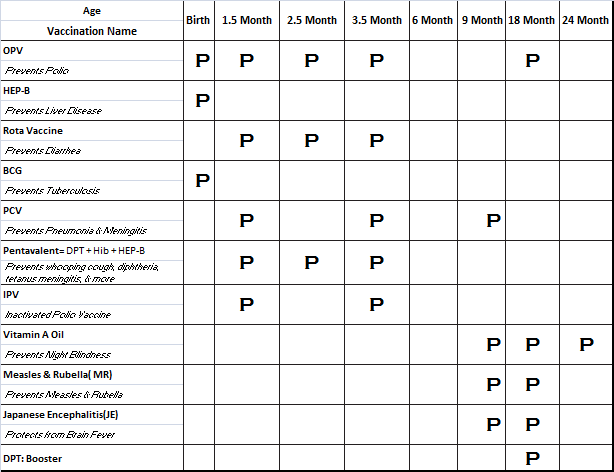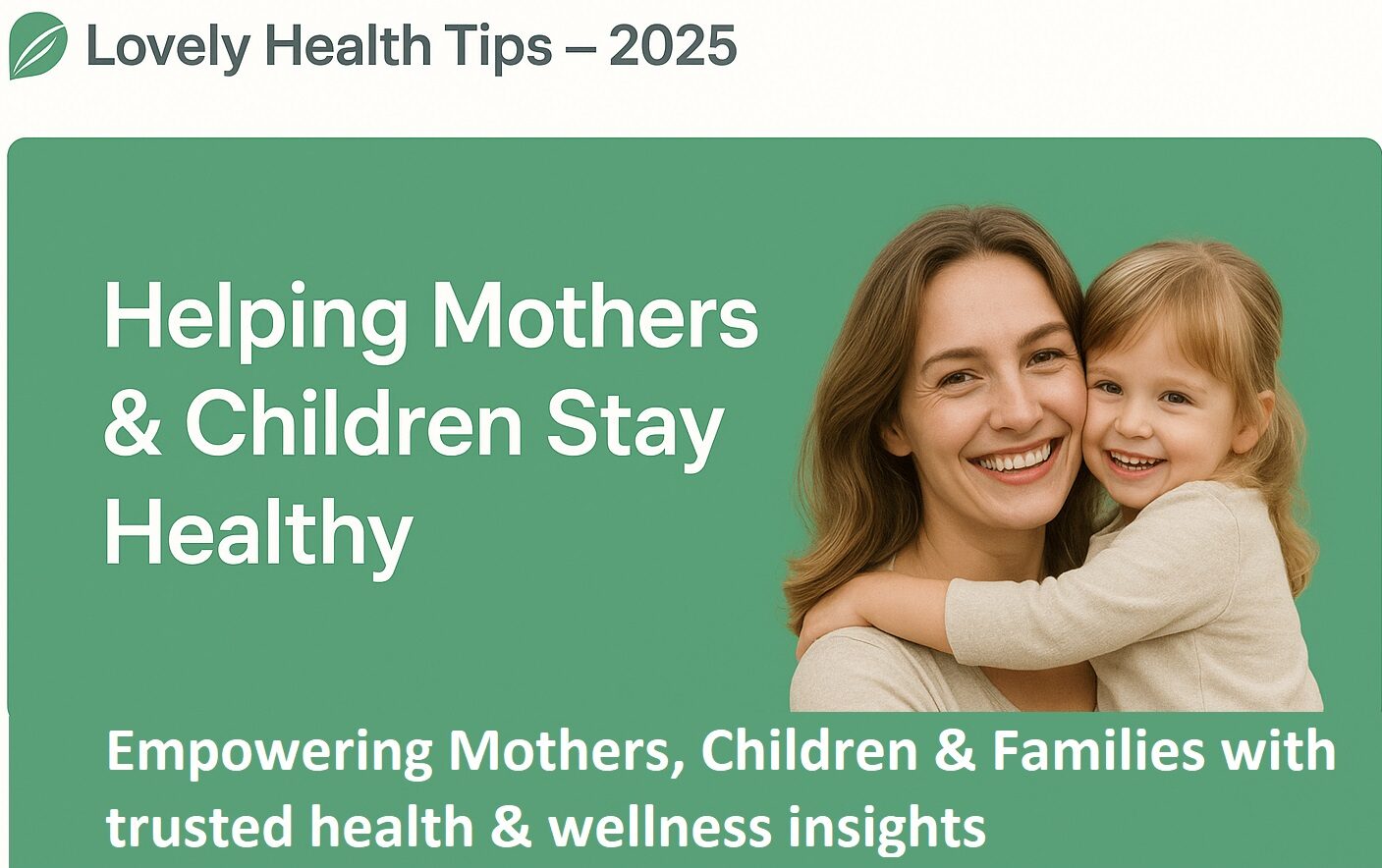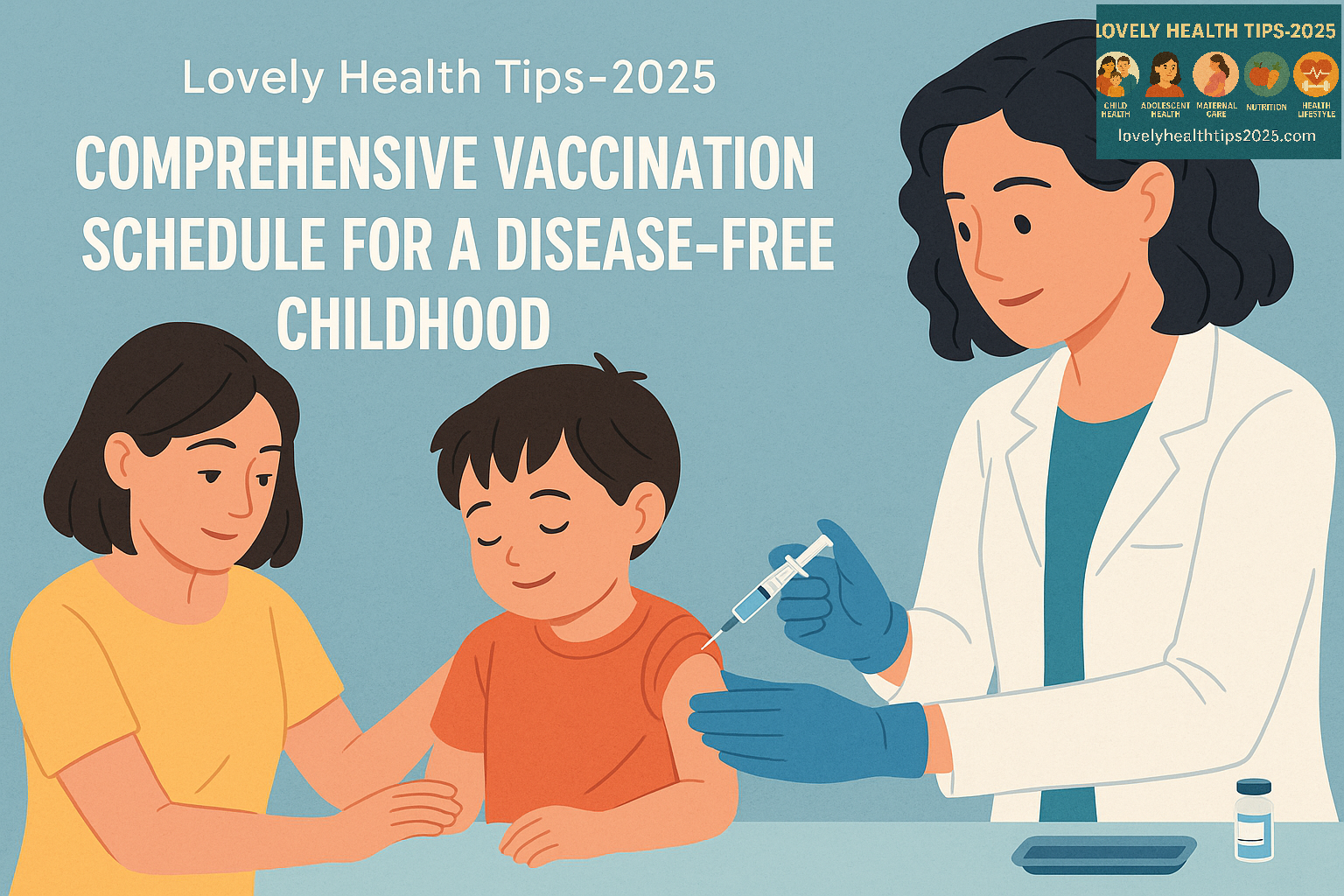Last Updated on October 21, 2025 by
Vaccination & Immunity of a baby : Your baby departs the safe and sterile confines of the mother’s womb at birth. The infant’s body lacks the experience necessary to defend itself in the face of the harsh outer world. Three crucial actions must be taken in order to support the newborn’s immunity development.
Introduction:
Step – 1
Please ensure providing the mother’s breast milk soon after birth of baby. First Milk is the child’s first natural vaccine on the day of the birth. Protecting yourself from all infections is better and there is more immunoglobulin and protein.
Only 3 to 5 milliliters of colostrum at a time is plenty for the baby — it provides all the baby needs to grow and provides extra immunity against a variety of diseases that she will encounter later in life. Do not skip it — it strengthens your child.
Step – 2
In addition to shielding infants from numerous dangerous illnesses, essential vaccinations aid in the development of immunity or defense, against illnesses even before they are exposed to them. These vaccinations are given away for free in government hospitals and through local health service providers. Keep in mind to provide all vaccinations on schedule.

Step – 3
Up until the kid is six months old, exclusively offer breast milk, don’t even give them water. Since clean with safe drinking water is said to be health and water is life,” only provide clean with safe drinking water after six months.
Breast milk contains antimicrobial factors that protect infants against a variety of acute diseases.
The following chart can help you become acquainted with:
The key immunizations to the baby.



Pentavalent vaccine contains: (Vaccination schedule)
Hepatitis-B, Hib-vaccine, diphtheria, pertussis & tetanus (DPT)
Give the infant doses at every 6 weeks until three doses are done: the first at 6 weeks, the second at 10 weeks and the third at 14 weeks.
Rotavirus– 3 doses of rotavirus at six, ten & fourteen weeks which are administered orally.
Rubella and measles (to prevent from infection & measles pneumonia): 1st dose to be administered between 9 to12 months of age of child & the second between 16 to 24 months of age of child.
Prevention from encephalitis: First dose within Nine to twelve months of age, second dose is at sixteen to twenty-four months of age.
Birth dosing institutionalized birth (in 24 hr window) Hepatitis - prevent jaundice due to the viral: 0 Pentavalent vaccine which is two points given three major doses in 6, 10 and 14 weeks.
Oral polio vaccine (OPV)- 1st dose at soon after birth at institution. Initial injections ought to be made at the ages of 6, 10 and 14 weeks, whereas a booster should be made at age 16 to 24 months.
In addition to the first and third doses of oral polio, the baby requires oral polio IPV at 6 and 14 weeks.
Vitamin A prevents night blindness- First dose- at 9 months + second dose- at 18 months + 3rd to 9th dose- at 6 months interval up-to 5 years.
FAQs:
Q1. In what important ways does the process of vaccinating children go according to a schedule assigned to them?
Ans. The common sense behind vaccinations is that, the vaccinations protect children against harmful and even fatal diseases. The suggested schedule offers due protection during the particular times when children are subjected to the utmost vulnerability.
Q2. When my child misses out on a vaccine dose then what will happen?
Ans. You should not worry if your child misses one vaccination under these circumstances. Immediately contact your pediatrician because they will provide a safe “catch-up” outline to return your child to their proper vaccination plan.
Q3. Are the vaccines safe on children?
Ans. Vaccines tend to cause mild transient symptoms even though they are at very low risk of producing severe effects (such as low-grade fever, skin sensitivity).
Q4. The administration of vaccines poses no threat to your child’s immune system strength.
Ans. Infants encounter more antigen types from their daytime surroundings than what is contained in vaccine preparations. Through vaccination injections children develop stronger resistance against particular diseases.
Q5. Which vaccines does the recommendation list as core for children?
Ans. All children should receive Hepatitis B together with DTP (Diphtheria, Tetanus, Pertussis) and Polio and Hib and Rotavirus and MMR (Measles, Mumps, Rubella) and Varicella (chickenpox) and Influenza during their vaccination program.
Q6. Should young children receive yearly vaccinations for the flu?
Ans. At 9 to 12 months, the first dose of anti-encephalitis should be given and at 16 to 24 months, a second dose is required.
Q7. Does doctors should decide if preterm infants need to receive vaccinations according to the standard timetable?
Ans. Under normal circumstances preterm babies need to stick to the regular schedule of vaccines as full-term babies and should use their actual birth date for chronological age calculations instead of adjusted age calculations.
Q8. WWhat should I do if I’d like to learn more about the possible side effects of receiving a vaccine?
Ans. Talk with your pediatrician. You can obtain evidence-based facts from them to evaluate risks against benefits while they resolve your vaccine doubts.
Reference : UNICEF for “Vaccination” and its link as mentioned below : Immunization | UNICEF
Reference : WHO for “Vaccination” and its link as mentioned below: https://www.who.int/teams/immunization-vaccines-and-biologicals/policies/who-recommendations-for-routine-immunization—summary-tables
Thanks and Regards
About the Author – “Mr. Bibhu Ranjan Mund”, Master in Public Health (MPH) from IIHMR University, Jaipur (Rajasthan) has experience of 18 years in Public Health activities. Through “Lovely Health Tips-2025”, we share the evidence & experienced based health & wellness guides with solutions for every day well-being. More from Author
Disclaimer
This information is suggestive only and not a replacement for medical advice. For more detail, please visit to my website as mentioned below:

